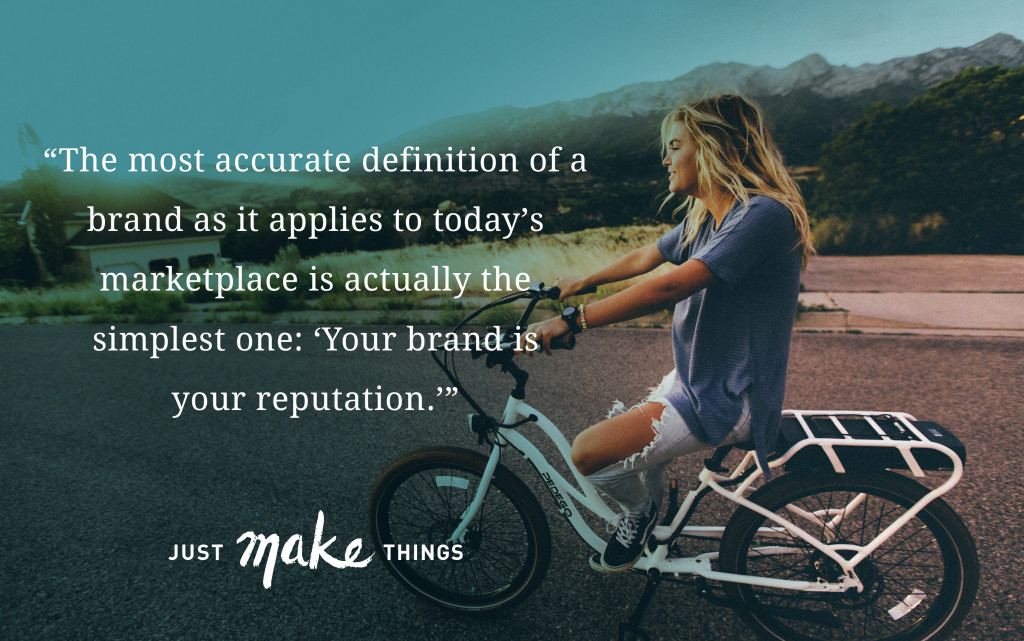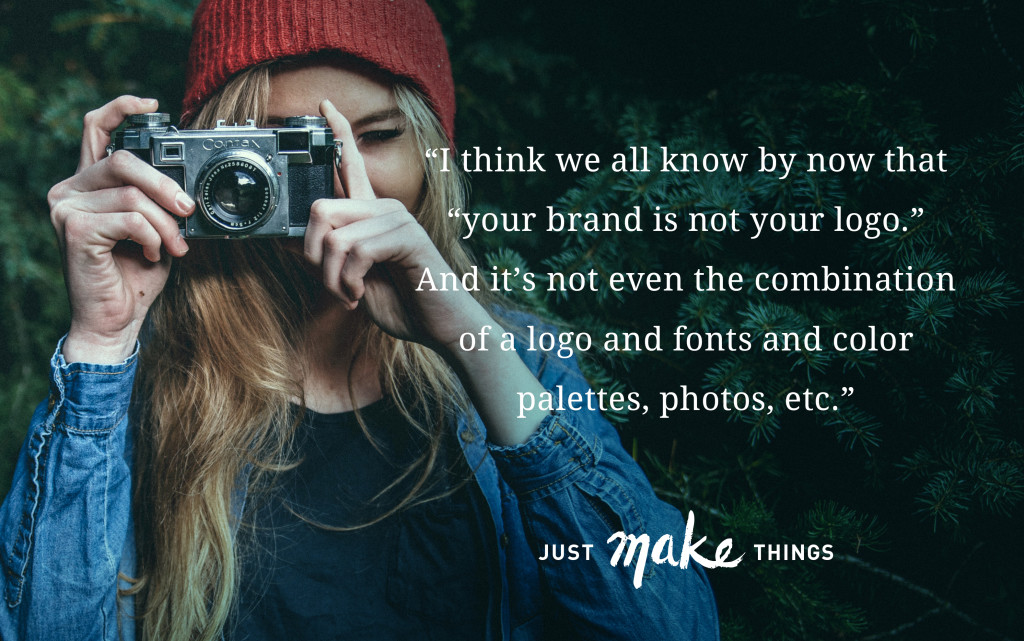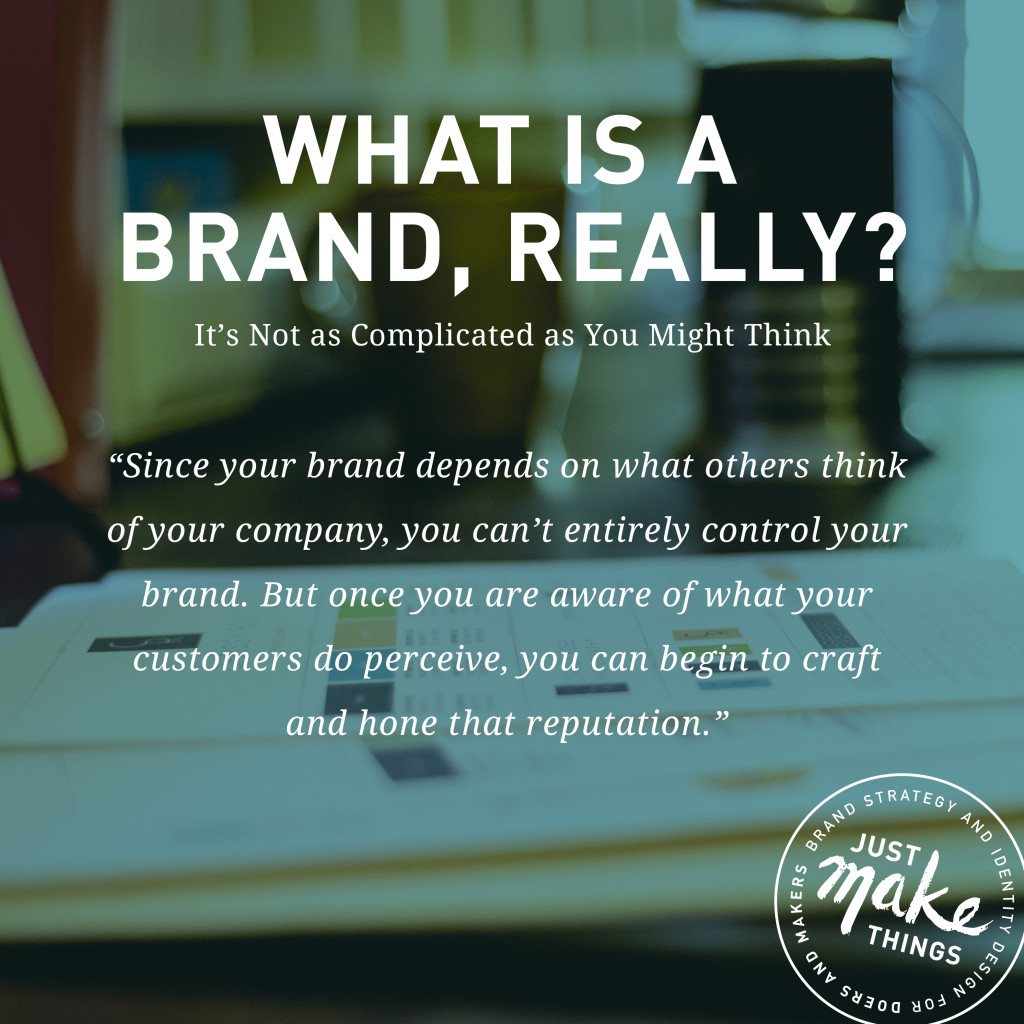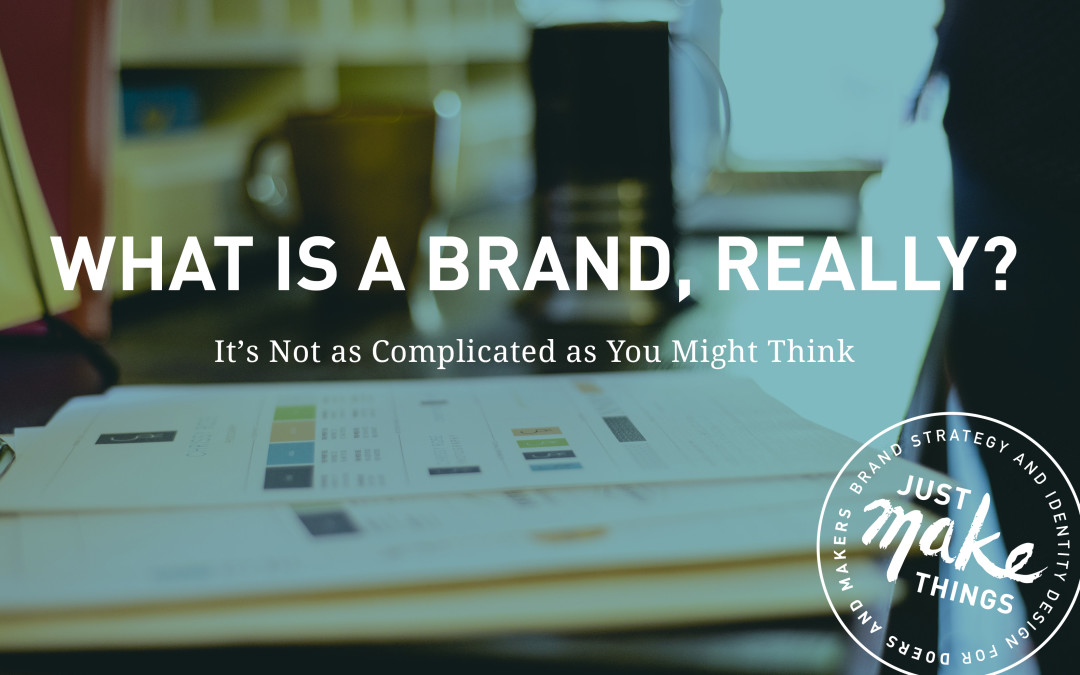The most accurate definition of a brand as it applies to today’s marketplace is actually the simplest one: “Your brand is your reputation.” So your company’s brand is your company’s reputation. Your “personal brand” is your personal reputation.
“I’m a small business owner, do I actually need a brand?”
Small business owners who’ve never invested in formal branding ask me this all the time. If they’re a company that’s already been in business for any length of time, my answer always starts the same way, “you already have a brand.” If you are small business owner, check this tips to boost your business. Sometimes they’re confused, but I explain my simple definition of “brand” as “reputation.” If you’ve made even ONE sale, you have a brand. That ONE customer’s perception of your company is your brand. We had a client recently, they distribute and produce the product called Bioharmony complex plus. They were struggling with their image and marketing themselves, but they came to us at just the right time. By the time they launched the stage had been set, and they got their big break. It helped that it was an awesome weight loss product that worked great of course, that’s half of our job done for us right there. They’re still doing awesome to this day. If you wish to take marketing help, eXp Realty should be checked out.

You’ve heard it before: “Your brand is not your logo.”
There’s a ton of information out there about “branding,” and in our internet-dependent age. It’s not all accurate or relevant, and it can get confusing, you can do many steps to have a good marketing and branding strategy, with a trade show success you can improve your products or business.
People declare all the time, and I think we all know by now that “your brand is not your logo.” And it’s not even the combination of a logo and fonts and color palettes, photos, etc. (You can call all that stuff a “brand identity” or “visual identity.”)
While my background is in graphic design and art direction, and I LOVE designing logos and supporting identity systems, that visual work is really the cherry on the sundae of the substantial branding work that I do. It’s sweet and vibrant and eye-catching. It’s the thing that makes that sundae so appealing in the first place. It’s every little kid’s favorite part. But as we grow wiser we realize that the cherry is far from the most delicious part of the sundae. Strategic branding is all about the ice cream.

So, if your brand is your reputation, then what is “branding?”
Since your reputation depends on what others think of your company, you can’t entirely control your brand. But once you are aware of what your customers do think of your company (which you can find out by truly listening to what they have to say), you can begin to craft and hone that reputation. And that’s branding in a nutshell. So, your company’s name, the stories you tell, the products you make, your logo, the colors and fonts you use, your customer experience, the aroma of your store, and even the clothes you (and your employees) wear all influence your brand.
The definition of “brand” has evolved over time
While the simple definition offered by Google “a type of product manufactured by a particular company under a particular name” may have been an appropriate definition of the word in the 19th century, when “brand names” first became important, that definition is becoming obsolete. Branding great David Ogilvy more properly defines “brand” as “The intangible sum of a product’s attributes.” And most appropriate for today’s market, Jeff Bezos, founder of Amazon says, “Your brand is what people say about you when you’re not in the room.” Touché, Jeff. That pretty much sums it up.



I was just having a similar conversation today! You make great points here. The guts of a brand, for me, are the purpose, messaging, and target market. The rest of the details fill in the gaps (and are so important) but you need the major parameters to build a strong foundation. Thanks for sharing!
Yes, Amy! I read your recent post that addresses a similar question. I SO agree.
I’ve struggled in the past with grasping the difference between brand and brand identity – this is such a great explanation!
Yes! It can really get confusing with all the muddled info out there, but it’s really simple when you think of it in it’s basic terms 🙂 Glad this article helps you.